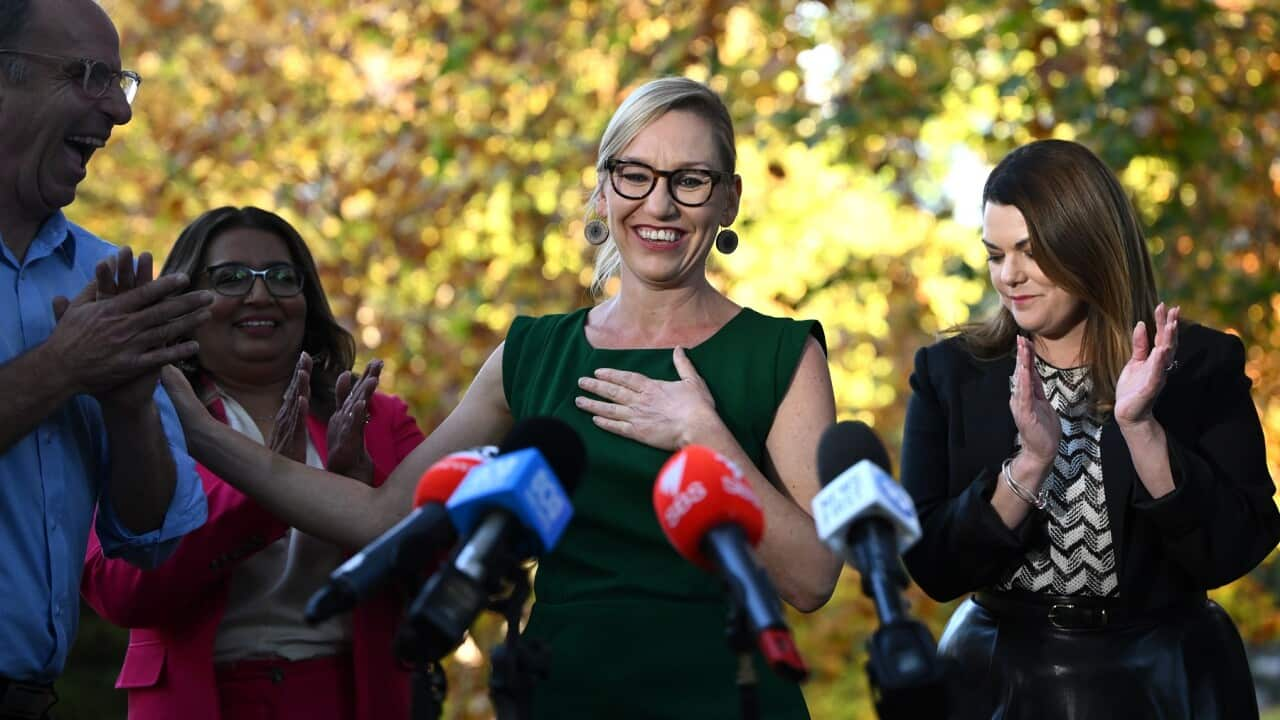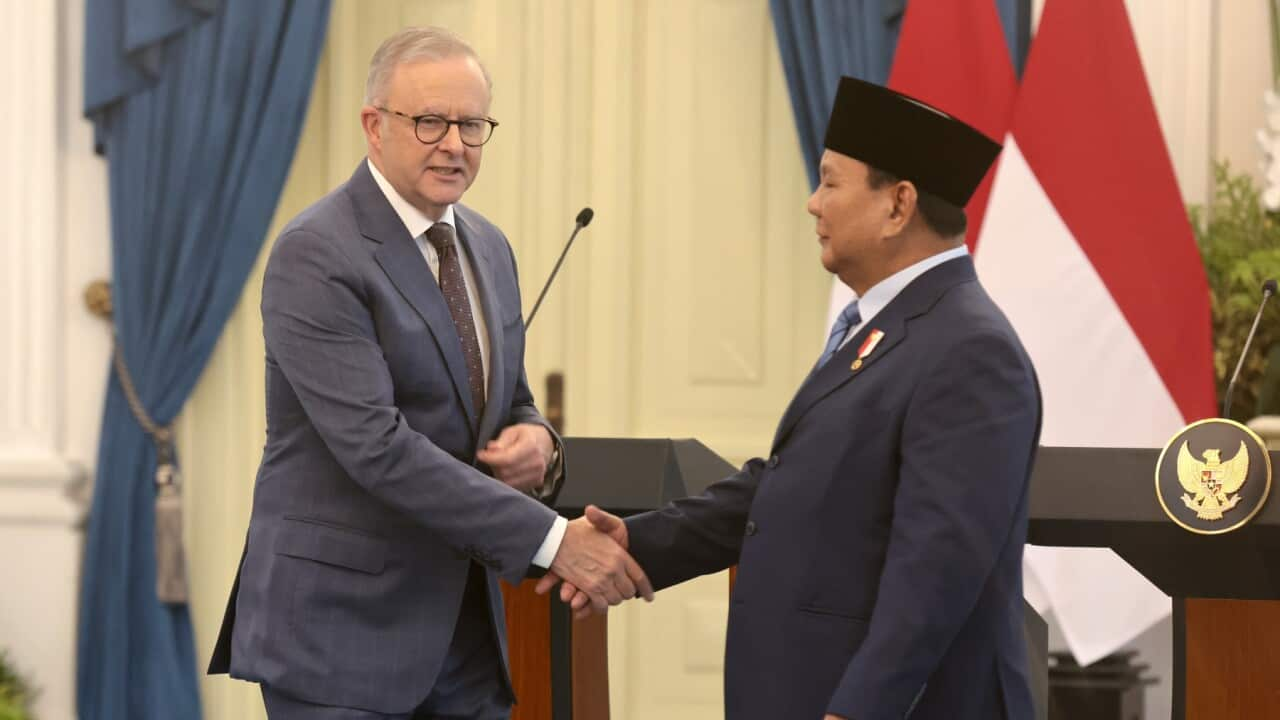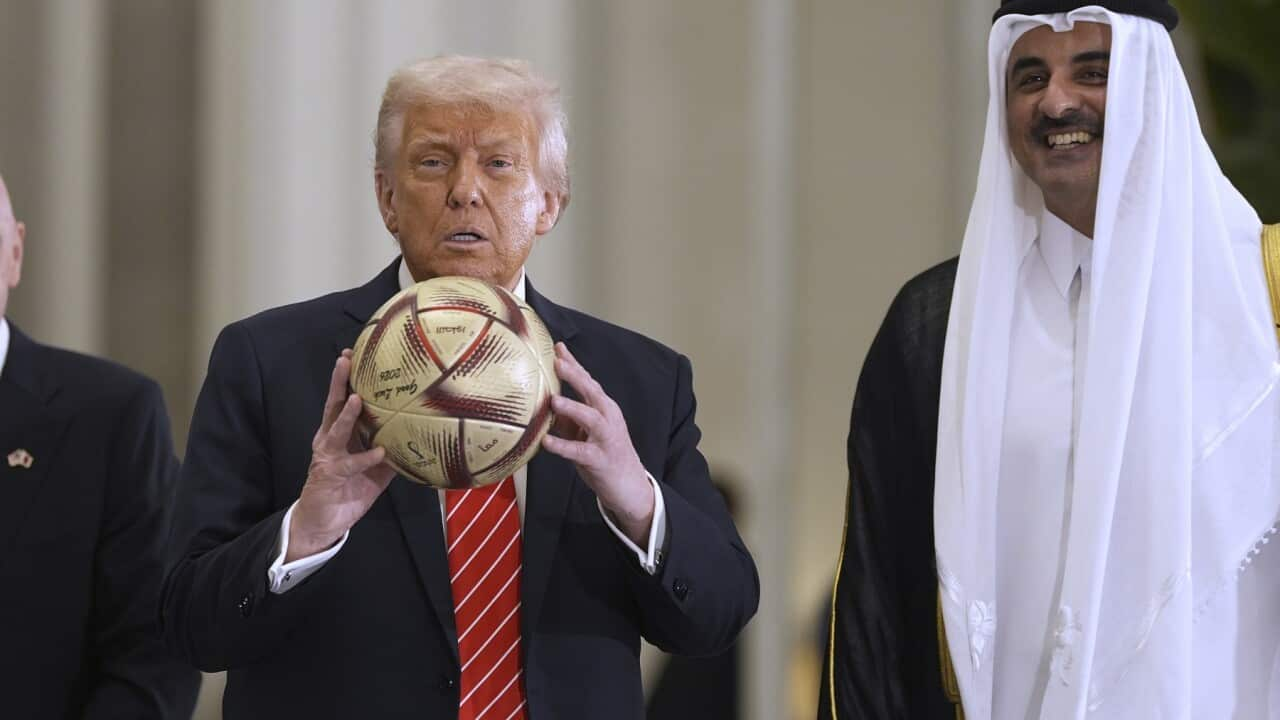TRANSCRIPT
The United Nations Secretary General Antonio Guterres has written a letter invoking Article 99 of the founding UN charter, the most powerful diplomatic tool in his arsenal.
Mr Guterres is urging the UN Security council to help avert a humanitarian catastrophe and is appealing for a ceasefire to be declared between Israel and Hamas.
It's the first time Mr Guterres has invoked this power since his tenure began in 2017 and allows him to raise any issue to the Security Council which in his opinion may threaten the maintenance of international peace and security.
It's also the first time any Secretary-General has formally invoked the article in the last 30 years.
Spokesman for the Secretary-General Stephane Dujarric says the humanitarian system in Gaza is at severe risk of collapse.
"Given the scale of the loss of human life in Gaza and in Israel, in such a short amount of time, the Secretary-General has today delivered a letter to the President of the Security Council, invoking Article 99 of the Charter of the United Nations. This is the first time that António Guterres has done this since he became Secretary-General in 2017. Article 99 states that ‘the Secretary-General may bring to the attention of the Security Council any matter which in his opinion may threaten the maintenance of international peace and security.’ In the letter, which has been shared with you, the Secretary-General urges the members of the Security Council to press to avert a humanitarian catastrophe, and he appeals for a humanitarian ceasefire to be declared."
Israel's ambassador to the United Nations Gilad Erdan has reacted to the move, calling it a new moral low by the Secretary-General.
He says a ceasefire would actually be a call to keep what he described as Hamas' reign of terror in Gaza.
Meanwhile Palestinian ambassador to the United Nations Riyad Mansour says they cannot move forward without having the Security Council shoulder responsibility.
He says the Arab Group is in the final stages of fine-tuning a draft resolution calling for a ceasefire.
“The security adviser of the vice president of the United States contacted my president this morning and our president pressed very clearly, immediate cease-fire, humanitarian assistance at scale. Stopping the forced transfer. And the United States to play a role, to act in order these things to happen."
It comes as heavy fighting in the Gaza Strip continues and Israeli forces intensify their ground operation in the south.
Many Palestinians have been forced to seek refuge, as the United Nations warns the number of safe areas is decreasing rapidly.
Hamas has reportedly launched its own round of retaliatory attacks, firing rockets towards Beersheba about 40 kilometres from the Gaza Strip in southern Israel.
Israeli Prime Minister Benjamin Netanyahu says Israeli forces are encircling the home of top Hamas leader Yahya Sinwar in Gaza, near the Khan Younis refugee camp.
"Two short updates: Last night I said that our forces can reach anywhere in the Gaza Strip. Now they are encircling Yahya Sinwar's house. So his house is not a fortress, and he can escape, but it's only a matter of time before we get him. Secondly, we exert pressure to allow the Red Cross to visit our abductees. Further to that, today I spoke again with the president of the Red Cross and told her to turn to Qatar, which has been proven to have leverage on Hamas, and demand Red Cross visits to our abductors, and of course the supply of medicine for them."
It's unclear whether the Hamas leader or any of his family are inside the home.
Israeli officials say they believe many Hamas leaders and fighters are holed up in underground tunnels.
And as Israeli tanks push further into Khan Younis, UN High Commissioner for Human Rights Volker Turk says the conditions in the Gaza Strip are worsening every minute.
"Palestinians in Gaza are living in utter, deepening horror. Military operations, including bombardment, by Israeli Forces continue in north, middle and south Gaza, affecting people who have already been displaced multiple times, forced to flee, in search of safety. But no place is safe. As we speak, some 1.9 million out of the 2.2 million Palestinians have been displaced and are being pushed into ever-diminishing and extremely overcrowded places in southern Gaza, in unsanitary and unhealthy conditions. And humanitarian aid is again virtually cut off, as fears of widespread disease and hunger spread."
The Israeli security cabinet has since approved a recommendation to allow fuel into the Gaza Strip to be used for hospitals, water pumps and desalination plants.
It was met with some opposition from Israel's ultranationalist national security minister and finance minister, who raised concerns the fuel could be used to benefit Hamas.
120,000 litres of fuel is set to be provided, which is just short of the United States' recommended 180,000 litres per day.
During the temporary ceasefire, 60,000 litres of fuel was allowed into the Gaza Strip per day.













